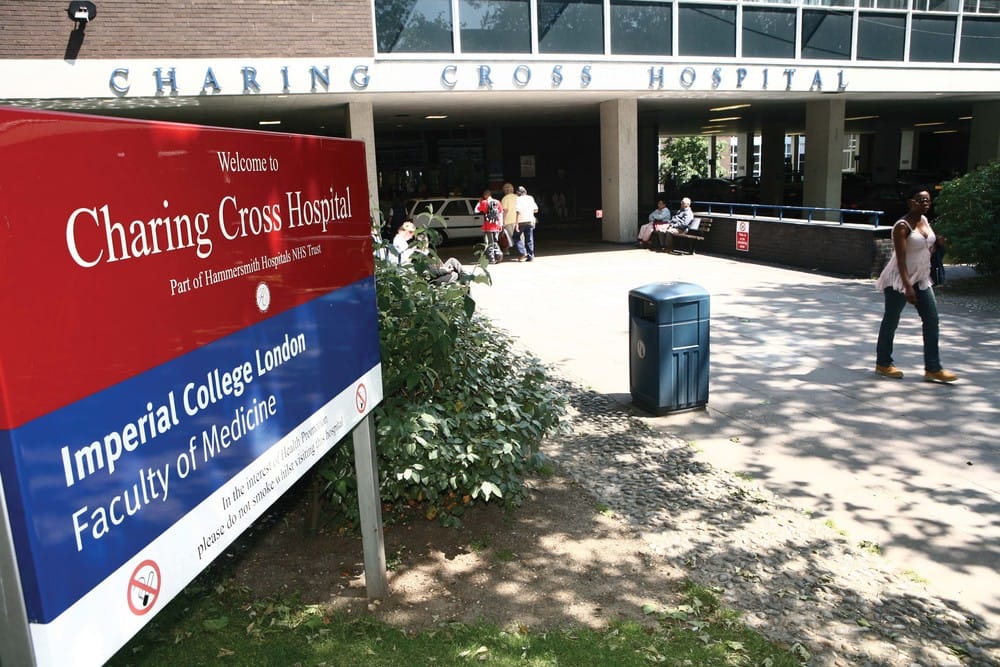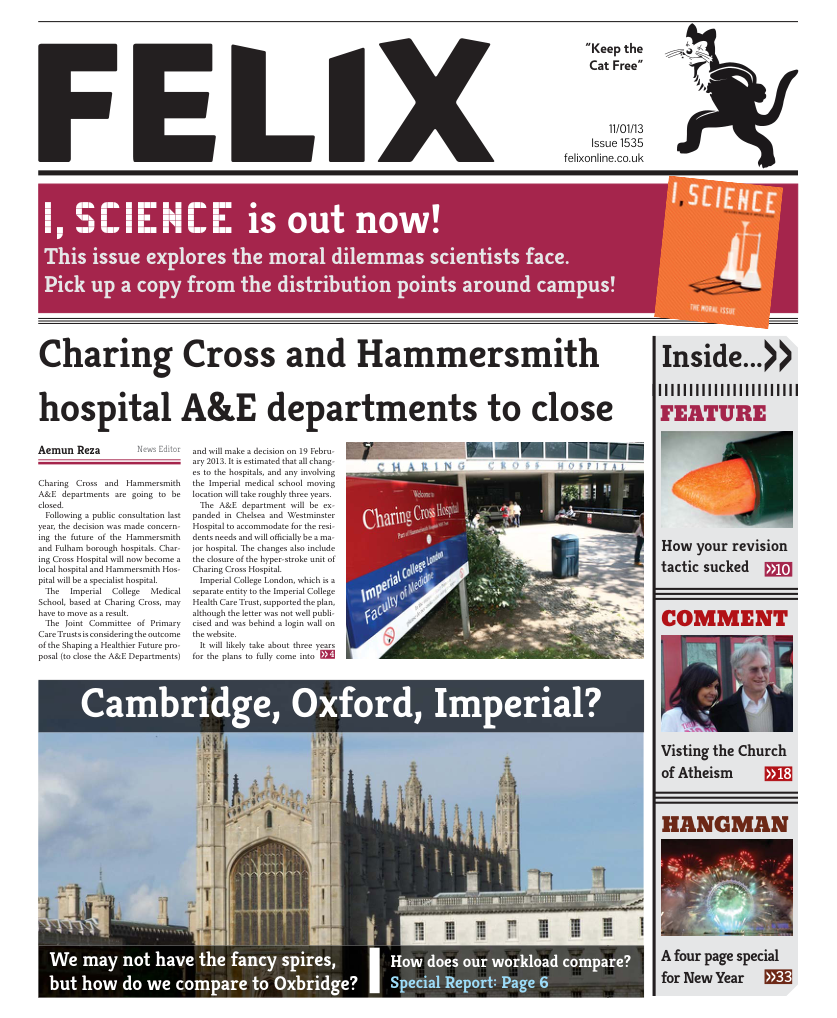Charing Cross and Hammersmith hospital A&E departments to close
Medical School may have to move, and all could happen in three years

Charing Cross and Hammersmith A&E departments are going to be closed.
Following a public consultation last year, the decision was made concerning the future of the Hammersmith and Fulham borough hospitals. Charing Cross Hospital will now become a local hospital and Hammersmith Hospital will be a specialist hospital.
The Imperial College Medical School, based at Charing Cross, may have to move as a result. The Joint Committee of Primary Care Trusts is considering the outcome of the Shaping a Healthier Future proposal (to close the A&E Departments) and will make a decision on 19 February 2013. It is estimated that all changes to the hospitals, and any involving the Imperial medical school moving location will take roughly three years.
The A&E department will be expanded in Chelsea and Westminster Hospital to accommodate for the residents needs and will officially be a major hospital. The changes also include the closure of the hyper-stroke unit of Charing Cross Hospital.
Imperial College London, which is a separate entity to the Imperial College Health Care Trust, supported the plan, although the letter was not well publicised and was behind a login wall on the website. (Note that the link is not to the letter referred to in the paragraph.)
It will likely take about three years for the plans to fully come into action.
The backlash to the decision has been remarkable. The ‘Save Charing Cross’ campaign stated how the NHS ignored 66,000 signatures of residents on 18 petitions. Patient Donald Gray-Raus said: “I am appalled by the idea of closure of the A&E department at Charing Cross Hospital. I am severely disabled and the thought of not having easy access to a hospital may be fatal to me. Hammersmith & Fulham is too large an area to be without a well-run centrally located A&E department.”
Councillor Nicholas Botterill, Leader of H&F Council, said: “We are deeply upset at the result. The NHS consultation was appalling and the service level left available to residents is appalling. This is bad news but there are options available to us and we are determined to see a hospital retained at Charing Cross.”
The main worry is that the initial closure of the A&E department and stroke unit of Charing Cross hospital will lead onto the eventual closure of the hospital itself. Another worry is the increase in ambulance journey times to a predicted 53 minutes, which could potential endanger lives. Residents are not satisfied with the idea of the remaining A&E departments accommodating for 400,000 people which is around 50% more than the national average.
Councillor Marcus Ginn, community care leader, said: “We have been warning of the threat to Charing Cross hospital for many months and this confirms out worst fears.
“Over many months of questioning on this, NHS bureaucrats have failed to address concerns that this will leave thousands of residents dangerously distant from emergency care or to show that lives will not be put at risk by these closures.

“We will be fighting tooth and nail to save Charing Cross – the public are not going to accept this plan quietly, especially when the case for stripping all the major service out of such a well loved and respected centre of excellence is not supported by evidence.
“They have not taken account of the thousands on new homes being built in west London which will mean we need more local access to hospitals, not less.
“We have warned them not to go down this path. The public reaction is going to be immense.”
The reasons behind these changes have been linked with the massive £1.8 billion deficit that the NHS North West London is trying to deal with. If the Charing Cross Hospital A&E department is closed there will be a lot more space for residential re-development which the Imperial College NHS Trust could sell for a large amount of money.
However, Anne Rainsberry, NHS NW London chief executive, said: “The main proposal is to transform the care provided in local communities. More care should be delivered closer to home. And by also centralizing some specialist hospital-based services, the NHS can ensure that people can benefit from receiving treatment at centres of best practice and excellence.
“This isn’t about cutting corners or getting by with the bare minimum. We want to change the way we deliver care so that outcomes are improved, both in terms of clinical outcomes and patient and staff experiences.
“We’ve used robust clinical evidence to set targets, and clinicians have set out the standards by which we can measure our performance against them.”
The downgrade of Charing Cross Hospital threatens the future of the hospital as the teaching site for Imperial College students. Charing Cross Hospital is currently the main campus for Imperial medical students but this may be moved to St. Mary’s Hospital in Paddington after the changes have taken place.









